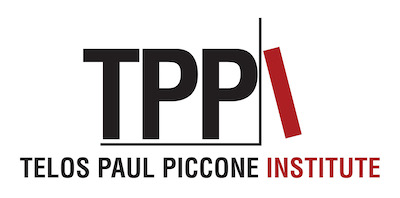 As Israel begins its attack on Hamas, it will be important to remember the underlying sources of war that will ultimately be the target of Israel’s efforts. Most leftists in the United States and Europe attempt to blame Israel for the continuation of hostilities. But the variety of enmity that fuels the war comes primarily from the Palestinian side. Hamas’s attack on Israel demonstrates that it sees Israel and Israelis as what Carl Schmitt called an “absolute enemy,” against which there can be no compromise and against which the primary strategy is eradication. There clearly can be no peace as long as this attitude prevails. It is also clear that Israel does not share this kind of enemy thinking. In fact, it has worked over the decades to integrate Palestinians into its society and economy. Arabs and Palestinians continue to live and work within Israel, in stark contrast to the plight of Israelis who remain in Gaza primarily as hostages. If the war cannot end until each side stops treating the other side as an absolute enemy, then Israelis have shown their willingness to live alongside Palestinians—while Palestinian leaders have demonstrated the opposite.
As Israel begins its attack on Hamas, it will be important to remember the underlying sources of war that will ultimately be the target of Israel’s efforts. Most leftists in the United States and Europe attempt to blame Israel for the continuation of hostilities. But the variety of enmity that fuels the war comes primarily from the Palestinian side. Hamas’s attack on Israel demonstrates that it sees Israel and Israelis as what Carl Schmitt called an “absolute enemy,” against which there can be no compromise and against which the primary strategy is eradication. There clearly can be no peace as long as this attitude prevails. It is also clear that Israel does not share this kind of enemy thinking. In fact, it has worked over the decades to integrate Palestinians into its society and economy. Arabs and Palestinians continue to live and work within Israel, in stark contrast to the plight of Israelis who remain in Gaza primarily as hostages. If the war cannot end until each side stops treating the other side as an absolute enemy, then Israelis have shown their willingness to live alongside Palestinians—while Palestinian leaders have demonstrated the opposite.
Since underlying attitudes drive the conflict, Hamas cannot be the sole target for Israeli actions in what has become a propaganda war. Nor can this effort be limited to attitudes in Palestine and Israel. While Hamas is the key actor engaged in war against Israel, it can only do so with the support of others. Even if Israel is able to destroy Hamas, it will not end the war if, in doing so, the population of Gaza continues to support war against Israel and new leaders rise up who reflect such attitudes. Likewise, the ability of Hamas or any other group to prosecute a war against Israel depends on support from sponsors such as Qatar and Iran, who provide the material and ideological resources for a war to continue, as do its supporters in the West. The attitudes of Palestinians, Arab and Islamic allies of the Palestinians, the military backing from Iran, and leftist supporters in the United States and Europe are the main underwriters of the Palestinian desire to continue the war, regardless of the particular armed group who is the war’s main actor. As Hamas understands, the primary battlefield is an ideological one.
Given this situation, the supporters of peace will need to address the war’s primary ideological sources. The Telos-Paul Piccone Institute began a discussion of these issues during its Forms of War conference with a panel on “Sources of War,” which you can view here. In order to develop this analysis, the Institute is now soliciting contributions to a research project that will investigate the theories and ideologies that motivate the enemy thinking that permeates not just Palestinian society and the Arab street but also pro-Palestinian activism in the United States and Europe. You can read the new call for papers here.




